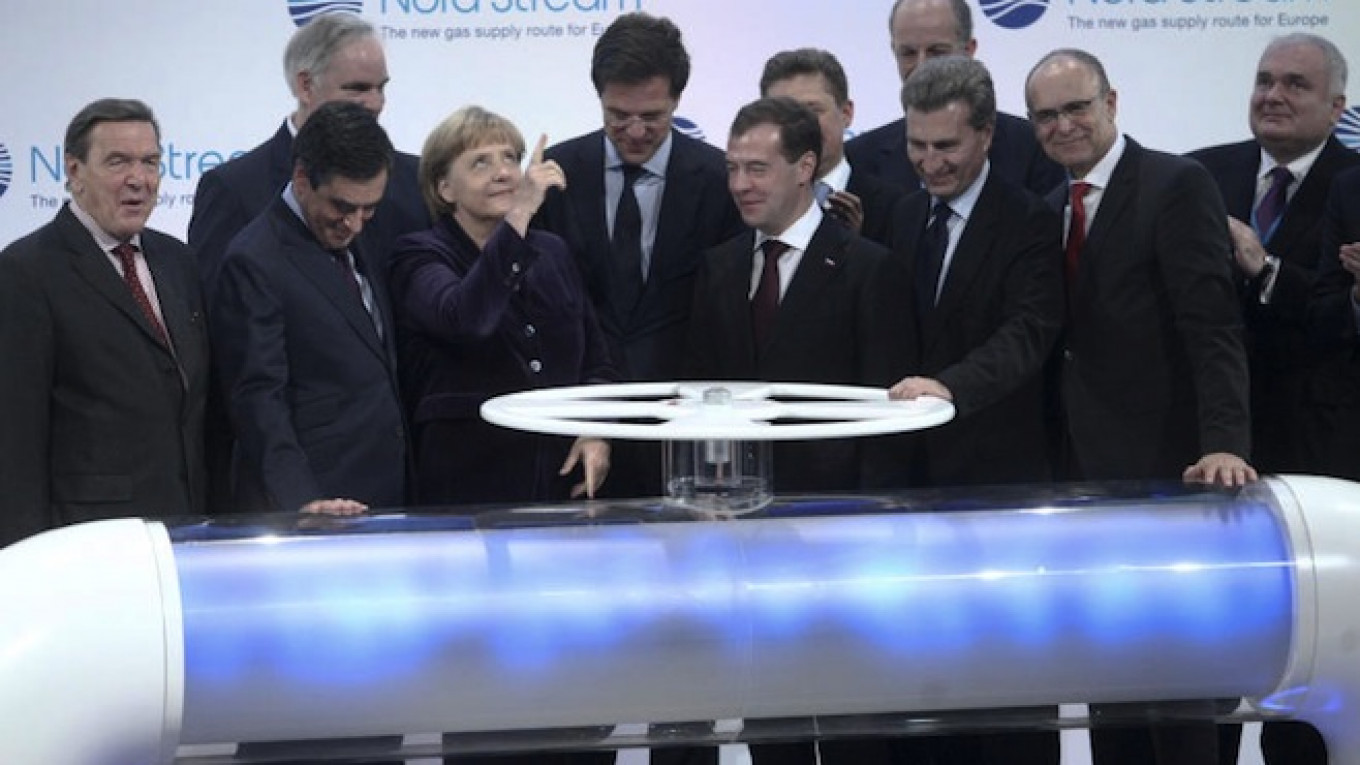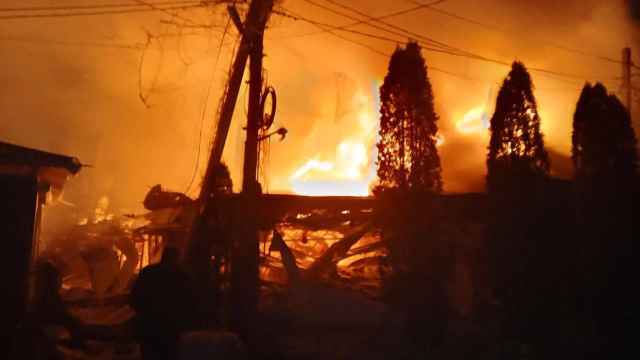Slovak Prime Minister Robert Fico on Thursday called a deal between Russia's Gazprom and its European partners to expand the Nordstream gas pipeline a "betrayal" that would cost Ukraine and Slovakia a combined billions of euros in transit fees.
Last week, Gazprom and its European partners signed a shareholders' agreement on the Nord Stream-2 gas pipeline project that will bypass Ukraine and run beneath the Baltic Sea to Europe, bringing Europe closer into Moscow's energy orbit.
Gazprom signed the deal with Germany's E.ON and BASF/Wintershall, Austria's OMV, ENGIE of France and Royal Dutch Shell. It stipulates that new pipeline capacity from Russia will come online in 2019.
"Suddenly an announcement came from Gazprom signing a contact with companies from western EU member states about building another branch of Nordstream. They are making idiots of us," Fico said.
"For months, there have talks at the European Council about the need to help Ukraine stay a gas transit country, to help it through difficult winter months," Fico told a joint news conference with Ukrainian Prime Minister Arseniy Yatsenyuk.
"They have betrayed an EU member state — Slovakia — and are going against political discussions with Ukraine at the European Council."
Slovakia is the main entry point for Russian supplies to the European Union via Ukraine but Russia — which is embroiled in conflict with Kiev — wants to find alternate routes.
Fico said doing so through the Nordstream expansion would cost Ukraine billions of euros in badly-need transit fees and deprive Slovakia of hundreds of millions of euros in revenue.
"I will address this issue in this spirit at the European council meeting," Fico said.
Russia provides for around a third of EU energy needs, but around half of the gas the EU imports from Gazprom is shipped via Ukraine, with which Russia is in conflict.
The Prime Minister also described Slovakia's decision last year to pump gas eastward to Ukraine ahead of winter a success, saying it was possible to further increase the annual capacity of 14.5 billion cubic meters.
He did not say by how much but cautioned that any decisions on future gas flow increases would be up to the European Commission and consider the need for any existing gas contracts.
"There are technical possibilities to further expand the capacity," Fico said. "We understand Ukraine's needs concerning gas."
A Message from The Moscow Times:
Dear readers,
We are facing unprecedented challenges. Russia's Prosecutor General's Office has designated The Moscow Times as an "undesirable" organization, criminalizing our work and putting our staff at risk of prosecution. This follows our earlier unjust labeling as a "foreign agent."
These actions are direct attempts to silence independent journalism in Russia. The authorities claim our work "discredits the decisions of the Russian leadership." We see things differently: we strive to provide accurate, unbiased reporting on Russia.
We, the journalists of The Moscow Times, refuse to be silenced. But to continue our work, we need your help.
Your support, no matter how small, makes a world of difference. If you can, please support us monthly starting from just $2. It's quick to set up, and every contribution makes a significant impact.
By supporting The Moscow Times, you're defending open, independent journalism in the face of repression. Thank you for standing with us.
Remind me later.






